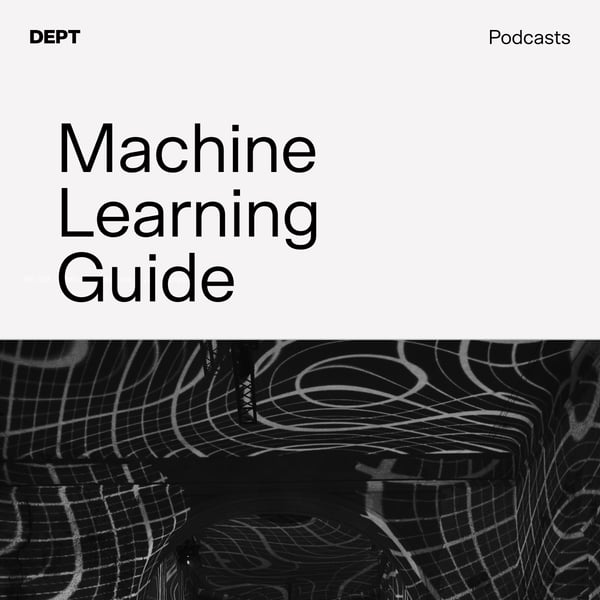MLA 001 Degrees, Certificates, and Machine Learning Careers
Machine Learning Guide
OCDevel
4.9 • 848 Ratings
🗓️ 24 May 2018
⏱️ 11 minutes
🧾️ Download transcript
Summary
While industry-respected credentials like Udacity Nanodegrees help build a practical portfolio for machine learning job interviews, they remain insufficient stand-alone qualifications—most roles require a Master’s degree as a near-hard requirement, especially compared to more flexible web development fields. A Master’s, such as Georgia Tech’s OMSCS, not only greatly increases employability but is strongly recommended for those aiming for entry into machine learning careers, while a PhD is more appropriate for advanced, research-focused roles with significant time investment.
Links
- Notes and resources at ocdevel.com/mlg/mla-1
Online Certificates: Usefulness and Limitations
-
Udacity Nanodegree
- Provides valuable hands-on experience and a practical portfolio of machine learning projects.
- Demonstrates self-motivation and the ability to self-teach.
- Not industry-recognized as a formal qualification—does not by itself suffice for job placement in most companies.
- Best used as a supplement to demonstrate applied skills, especially in interviews where coding portfolios (e.g., on GitHub) are essential.
-
Coursera Specializations
- Another MOOC resource similar to Udacity, but Udacity's Nanodegree is cited as closer to real-world relevance among certificates.
- Neither is accredited or currently accepted as a substitute for formal university degrees by most employers.
The Role of a Portfolio
- Possessing a portfolio with multiple sophisticated projects is critical, regardless of educational background.
- Interviewers expect examples showcasing data processing (e.g., with Pandas and NumPy), analysis, and end-to-end modeling using libraries like scikit-learn or TensorFlow.
Degree Requirements in Machine Learning
-
Bachelor’s Degree
- Often sufficient for software engineering and web development roles but generally inadequate for machine learning positions.
- In web development, non-CS backgrounds and bootcamp graduates are commonplace; the requirement is flexible.
- Machine learning employers treat “Master’s preferred” as a near-required credential, sharply contrasting with the lax standards in web and mobile development.
-
Master’s Degree
- Significantly improves employability and is typically expected for most machine learning roles.
- The Georgia Tech Online Master of Science in Computer Science (OMSCS) is highlighted as a cost-effective, flexible, and industry-recognized path.
- Industry recruiters often filter out candidates without a master's, making advancement with only a bachelor’s degree an uphill struggle.
- A master's degree reduces obstacles and levels the playing field with other candidates.
-
PhD
- Necessary mainly for highly research-centric positions at elite companies (e.g., Google, OpenAI).
- Opens doors to advanced research and high salaries (often $300,000+ per year in leading tech sectors).
- Involves years of extensive commitment; suitable mainly for those with a passion for research.
Recommendations
-
For Aspiring Machine Learning Professionals:
- Start with a bachelor’s if you don’t already have one.
- Strongly consider a master’s degree (such as OMSCS) for solid industry entry.
- Only pursue a PhD if intent on working in cutting-edge research roles.
- Always build and maintain a robust portfolio to supplement academic achievements.
-
Summary Insight:
- A master’s degree is becoming the de facto entry ticket to machine learning careers, with MOOCs and portfolios providing crucial, but secondary, support.
Transcript
Click on a timestamp to play from that location
| 0:00.0 | Welcome to the first episode of the exclusive podcast Machine Learning Applied, a companion podcast to |
| 0:07.3 | Machine Learning Guide, and thank you for becoming a patron to unlock this series. I very much |
| 0:13.6 | appreciate it. This series is going to be a much more applied approach to machine learning. |
| 0:18.2 | We're going to talk about degrees and certificates, interviewing tactics, |
| 0:22.6 | tech tips and tricks, stuff around pandas, numpy, tensor flow, maybe any sort of hot news |
| 0:28.8 | that's going on the machine learning community, all that stuff that fits into a traditional |
| 0:32.9 | style podcast where the machine learning guide podcast is a little bit unusual in that they're very |
| 0:38.9 | long one hour episodes that are educational and sequential. |
| 0:43.2 | Machine learning guide is more what you'd get out of iTunes, you, or the great courses. |
| 0:47.8 | Machine learning applied. |
| 0:49.4 | This podcast is going to be like your traditional podcast. |
| 0:52.6 | In this episode, we're going to do a throwback to a machine learning guide podcast on |
| 0:58.0 | certificates and degrees, where we talked about Coursera specializations, |
| 1:03.0 | Udacity, Nano Degrees versus a bachelor's, master's, or PhD. |
| 1:08.1 | And the reason I'm touching on that episode again is that if you recall in that |
| 1:12.6 | episode, my interviewing experience in the machine learning industry was a little bit limited, |
| 1:17.3 | and I said to take my recommendations there with a grain of salt. And since then, I've gotten |
| 1:21.7 | many, many emails people asking if my recommendations there still stack up. If my recommendations in that podcast still |
| 1:28.9 | hold, especially the big question people keep asking is, should I get a master's? Should I do the |
| 1:36.0 | OMS-CS Georgia Tech online master's degree? And just a spoiler alert for this episode, the answer is |
| 1:43.1 | yes. |
| 1:45.7 | You should get a master's. This is from personal experience for the last year since I released that episode, interviewing |
... |
Please login to see the full transcript.
Disclaimer: The podcast and artwork embedded on this page are from OCDevel, and are the property of its owner and not affiliated with or endorsed by Tapesearch.
Generated transcripts are the property of OCDevel and are distributed freely under the Fair Use doctrine. Transcripts generated by Tapesearch are not guaranteed to be accurate.
Copyright © Tapesearch 2025.

